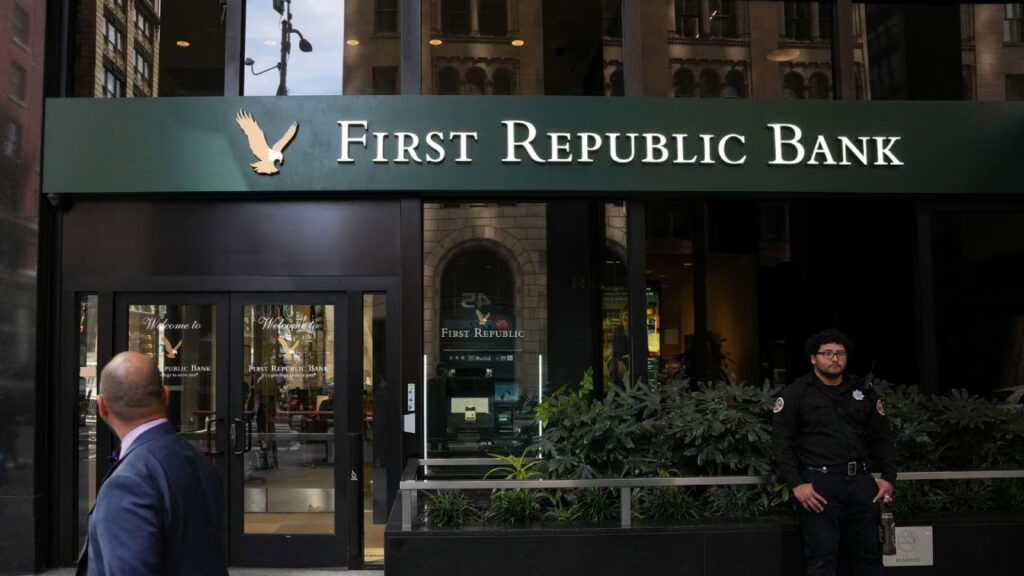Economy
JPMorgan’s Dimon Overcomes Banking Crisis with First Republic
The acquisition enables First Republic branches to reopen at normal business hours, after being impacted by the Banking crisis. It also avoids presenting the government with the political headache of having to decide whether to again extend special protection, as it did for Silicon Valley Bank and Signature Bank, to the uninsured depositors of First Republic—a group that included JPMorgan itself and 10 of the country’s other largest banks.
Now one question for investors is whether JPMorgan took on more headaches for itself. Chief Executive Jamie Dimon has often expressed regret about his bank’s role as savior during the 2008 financial crisis, when it agreed to acquire troubled Wall Street investment bank Bear Stearns and retail bank Washington Mutual.
The moves helped prevent an even worse fallout from the Banking crisis, but saddled JPMorgan with long-term legal disputes and billions of dollars of financial obligations. JPMorgan was embroiled in years of questions about who was liable for claims that arose from troubled mortgages, which included legal disputes with the FDIC about Washington Mutual.
But Mr. Dimon’s comments on Washington Mutual, known as WaMu, have been more nuanced than on Bear Stearns. “We would not do something like Bear Stearns again—in fact, I don’t think our board would let me take the call,” Mr. Dimon wrote in his letter to shareholders accompanying the bank’s 2014 annual report. “The WaMu deal might still make sense but at a much lower price to make up for the ongoing legal uncertainty…These are expensive lessons that I will not forget.”
Get Wall Street Journal 2-Year Print Subscription for $480
Asked about those past comments on a call with reporters on Monday morning, Mr. Dimon struck a different tone. “I don’t like to cry over spilled milk but sometimes I do,” he said, adding that he was “quite upset about the extra charges.”
But unlike Bear Stearns, First Republic isn’t a complex Wall Street investment bank, with derivatives and other entanglements that can complicate a takeover even in the best of times.
And the key question about First Republic’s mortgage loans is their interest-rate risk, not whether they can be repaid at all. They also have largely remained on First Republic’s own books rather than being securitized out.
“This is actually a fairly simple institution, in a good way, and that gives us a fair bit of comfort,” JPMorgan Chief Financial Officer Jeremy Barnum told reporters.
What is more, the FDIC is providing 80% loss coverage on real estate and commercial loans, for seven and five years respectively. Although JPMorgan described First Republic’s loans as very creditworthy, they could have been costly to carry from a capital perspective. The loss agreement allows the bank to carry them at a lower risk weighting, reducing the hit to its capital ratios as a result of the deal.
Get WSJ Print Subscription Delivery 6-days a week for 1 year for $318
Similarly, JPMorgan is marking its acquired loans to market prices that account for lower rates. At those lower values, the loans’ yields will be improved and interest-rate risk reduced.
The FDIC is also providing $50 billion in five-year, fixed-rate financing to JPMorgan. The FDIC said that it estimated that the cost to the Deposit Insurance Fund to resolve First Republic will be about $13 billion, though it didn’t specify what would generate those costs.
“You have a very clean bank, in as clean a way as you can get it,” Mr. Dimon said of the deal on a conference call with analysts.
All of which might help explain why, some 15 years after 2008, JPMorgan was willing to do what it took to win what the FDIC called a “highly competitive bidding process” for First Republic. Despite the troubles and complexities of its 2008 deals, JPMorgan did emerge from the prior Banking crisis with the size and scale that has helped it to be not only the U.S.’s biggest bank, but one of the most profitable, with returns on equity that consistently top those of rivals. Crucially, First Republic could help JPMorgan grow in wealth management, an attractive business area, as it competes with the likes of Morgan Stanley.
Given the opportunity to add to that scale, it shouldn’t be a surprise that JPMorgan was willing to step up once again.

